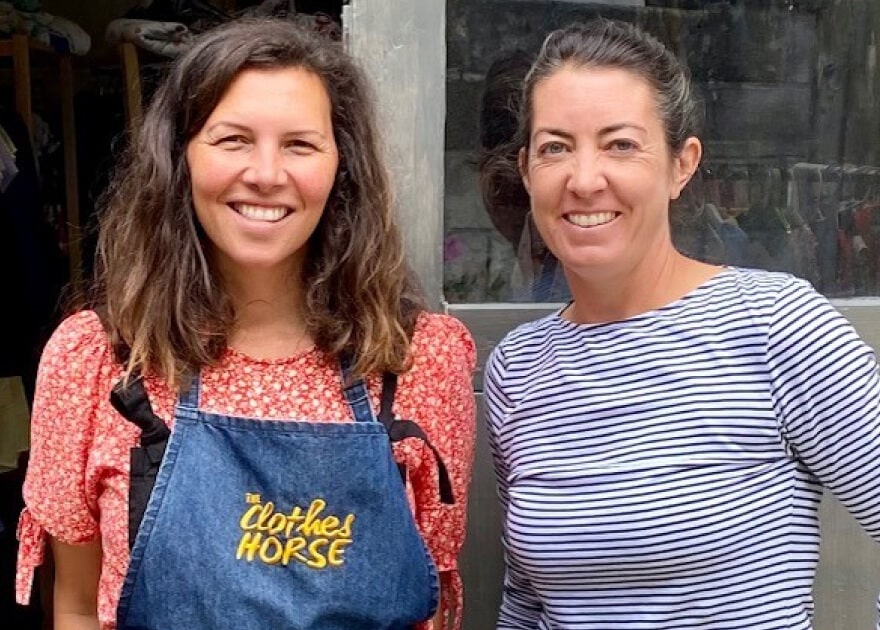We have 21 years experience of managing funds and distributing grants. We can help you:
- Set up a named fund, or transfer an existing fund / trust
- Ensure your fund is tailored to the causes that matter to your business
- Allow you and your staff to be involved in grant awarding panels
- Know you’re making a difference and your fund is used wisely
- Facilitate you getting to know your beneficiariesIndividuals being supported by the group or organisation applying for a grant. through project visits and volunteering opportunities
- Take care of all the due diligenceChecking organisations and people are who they say they are and management of the group and project meet out guidelines. and administration
- Offer tax effective giving advice
- Report back annually on your investments, spend and grant impact
“It never ceases to surprise me how often a relatively modest grant or donation can have such a positive, profound and transformational effect. It is a wonderful feeling being able to support our wider community.”

A fund tailored to your business’ giving priorities
Cornwall Community Foundation will work with you (and your staff team if desired) to establish the criteriaSpecific terms that a project has to meet to be eligible to receive funding. For example, grants in a specific geographic location. of your fund, whether that’s specific causes or locations you wish to support.
We’ll also produce an annual report on the investment and the impact of your giving.

How it works:
Setting up a named fund
Cornwall Community Foundation will work with you (and your staff team if desired) to establish the criteria of your fund, whether that’s specific causes or locations you wish to support. We can use our extensive experience and networks to advise where your money can have the most impact.
If there are specific projects you would like to support we can facilitate those donations. If not you can tell us the causes which matter to you and your business and we will work with you to set the fund criteria.
We have 21 years of experience distributing grants across the Duchy so we understand the need and where your grants can have the most impact. We will report back on your fund impact annually and work with you each year to continue to ensure the fund is meeting the needs of the community and the philanthropic aims of your business.
Funds options:
The two types available
Immediate Impact Fund (£20k+)
This can be set up as a one-off fund or as an ongoing fund that is topped up regularly, usually annually. This is ideal if a long- term endowmentMoney that is invested for the long-term. is unsuitable, as it enables fundholders to put their money to work straightaway.
An immediate impact fund is distributed in full over a set period of time.
Immediate impact fund criteria:
- £20,000 minimum gift is required to set up a named, donor-advised fund with bespoke grant-making.
- Gifts of under £20,000 can be made to any of our established funds.
Endowment Fund (£100k+)
An endowment fund involves a single donation or multiple donations over a period of time. The capital is invested and the income earned is awarded in grants. This is ideal for people who want to provide a lasting legacy for their local community and perhaps leave a legacy of giving with the next generation of their own family.
Endowment fund criteria:
- £100,000 minimum gift is required to set up a named, donor-advised fund with bespoke grant-making.
- Gifts of less than £100,000 can be made to our general endowment fund or any other named fund.
Speak to an advisor

Tamara Sherston-Baker
Development Director


Fundholder spotlight:
The Cornwall Glass Fund
The Cornwall Glass Fund was set up in 2009 by Business Club members Cornwall Group Ltd. It was the company’s long term ambition to be able to set up a fund, to contribute to and support its surrounding community. Since its inception the fund has invested more than £60,000 to 65 community projects across Cornwall and the Isles of Scilly.

Download:
Our fundholder brochure
Read personal stories from our fundholders, and learn more about the benefits and process of setting up a named fund in our brochure.
Click the button below to download the PDF (1.3mb).
Fundholder questions, answered
When you set up a named fund you can choose to make one or more of the following recommendations as to how you’d like your fund to be used.
You can:
- determine the purposes of the fund and allow CCF the discretion to make grants in line with local needs
- determine the purposes of the fund and recommend grant recipientsThe projects or organisations that are receiving funding. from shortlists prepared by our team
- recommend one or more registered charities to be annual beneficiaries of grants
- recommend the fund be used to support CCF activities at our discretion
- Fees: 10-15% grant-making fee on successful grant awards and (if relevant) 1.25% annual endowment management fee.
Fundholders can be involved as little or as much as they wish in the grant-making process.
Some fundholders tell us that getting to know the charities they are supporting is one of the most rewarding aspects of giving. Other fundholders prefer to remain in the background.
How much you get involved is entirely up to you.
Fees: 10-15% grant-making fee on successful grant awards and (if relevant) 1.25% annual endowment management fee.
If you’re not ready to set up your own fund you can begin with a donation to an existing fund. For example our Community Fund supports a diverse range of inspirational community projects across Cornwall and the Isles of Scilly. All the projects supported by the fund are providing transformational support for vulnerable people in their communities.
We seek to build our endowment and ensure that the fund holders’ donations entrusted to us generate a growing income that can be distributed as grants.
In doing so we select specialist charity or similar funds managed by professional fund managers. We expect the managers to use ‘responsible’ criteria when selecting stocks and engaging with the management of companies that they invest in, ensuring that they uphold suitable standards on behalf of all their investors. In selecting and reviewing investment managers, we ensure adherence to these criteria as being non-negotiable. In particular we require that they pursue Net Zero 2050 climate change policies and UN Sustainable Development Goals at all times.
At present, we believe that this stance is not consistent with investment in companies whose principal business is the extraction of fossil fuels; as a result our Endowment funds have no holdings in this sector. Other funds are available that have other criteria and should a fund holder wish to use such a vehicle, we would be happy to invest their donations in a way that meets their own definition of responsible investing.
Setting up a fund can seem daunting so we’d love to talk you through it but hopefully some of your initial questions are answered in our Guide to Tax Efficient Giving.
Donations by limited companies: Your company’s donation to charity is deductible from its total profits when calculating Corporation Tax. Corporate donations are not eligible for Gift Aid.
Gifts of land, buildings or shares: Your company could benefit from Corporation Tax relief if it gives land, property or qualifying shares to a charity, or sells them to a charity at less than their market value.
Payroll giving: An unlimited amount can be contributed to charity via your employees’ payroll giving. It costs your employees less to give because their donation is given to charity from their gross salary before any tax is taken off – so they don’t pay tax on the gift.



